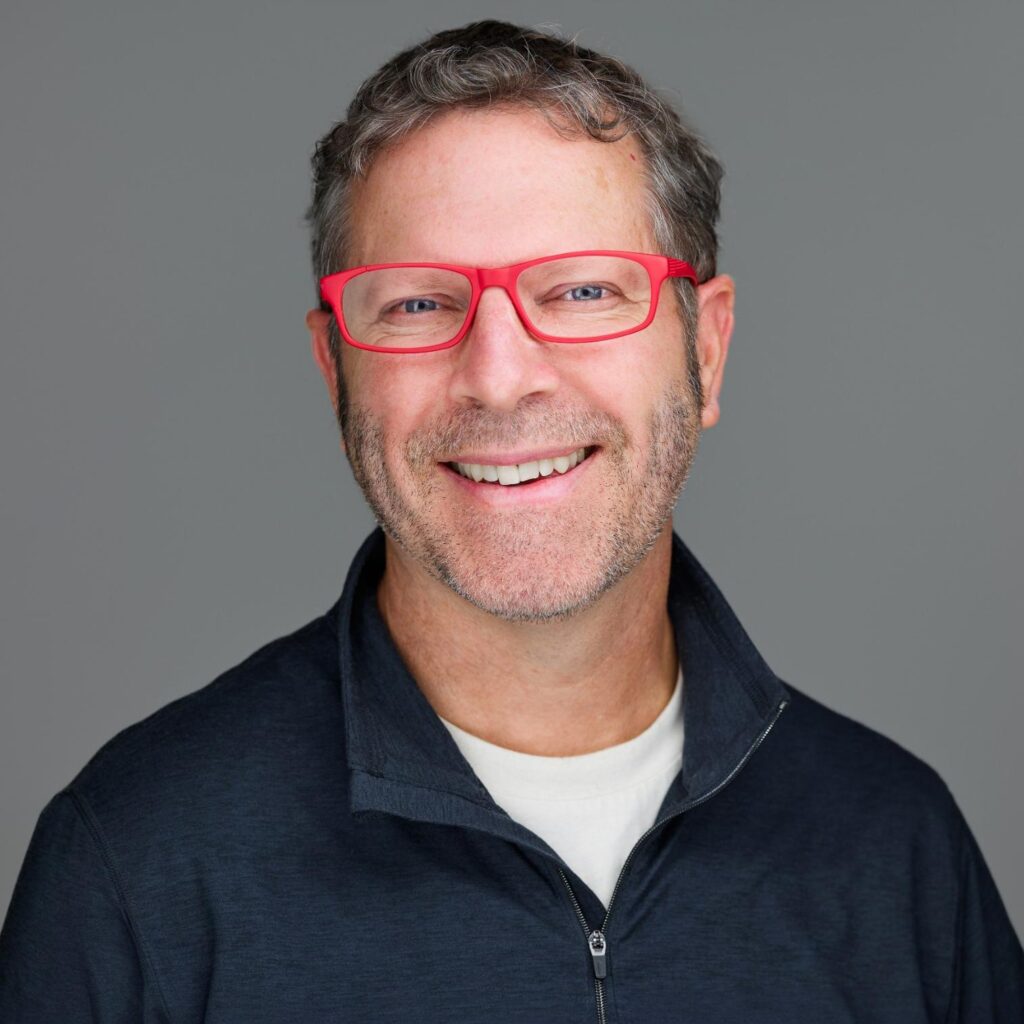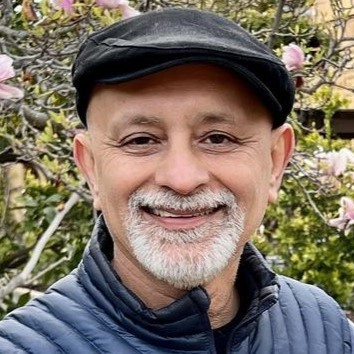DOCTOR OF PHILOSOPHY IN INTEGRAL NOETIC SCIENCES
Home » Degrees and Programs » PhD in Integral Noetic Sciences
PhD in Integral Noetic Sciences
Learn more about taking the next step toward your dreams...
An Integral Approach to Consciousness & Reality
We find ourselves in a multidimensional multiverse that is full of mystery and wonder. Come be part of the next generation of scholar-practitioners, thought-leaders, researchers, entrepreneurs, and educators exploring the frothy edges of this Wild Kosmos and help us discover some of its pearls of wisdom. There has never been a greater sense of urgency on this planet than right now for a bigger more complete vision of Reality and its relationship to consciousness – in its human and more-than-human expressions.
The Integral Noetic Sciences (INS) graduate program is truly a one-of-a-kind program. You are not going to find another program that uses an integral approach to include so many seemingly divergent schools of thought and approaches in order to explore the big questions around Reality—Consciousness, such as “What happens after we die?”, “Are we alone in the universe?”, “Do bees really have culture?”, “Is there a God – or Goddess, or Supreme Ground of Being?”, “Is magic real?”, “If a tree falls in the forest and no one is there to see it does it make a sound?”, “Do some animal species have an awareness of death?”, and “Is matter derivative of consciousness?”. So, as you can see, we take on the big questions in INS!
In short, the Integral Noetic Sciences program is dedicated to the scientific study of the relationship between consciousness and reality through the use of integral mixed methods with a focus on anomalous and noetic experiences. As our name applies there are three major areas of focus in this program:
- Integral perspectives: This includes integrative metatheories such as Ken Wilber’s integral theory, Roy Bhaskar’s critical realism, and Edgar Morin’s complex thought as well as integral visions such as Karan Barad’s posthumanist cosmology, Sri Aurobindo’s integral yoga, Hiroshi Motoyama’s synthetic “East-West” subtle energy science, and the various schools of metamodernism that have emerged in the last decade. A variety of transdisciplinary methods and models are used alongside integrative maps and frameworks.
- Noetic perspectives: This includes philosophy of mind, consciousness studies, plant & animal consciousness, ecosomatics & ecopsychology, parapsychology, transpersonal psychology, anomalous experiences, phenomenology, contemplative science, esoteric practices, the magickal traditions, psychedelics, neurophenomenology, paranormal studies, cognitive science, shamanic traditions, and the study of post-autonomous ego development. Students and faculty are engaged in their own practices (somatic, esoteric, contemplative) of self-transformation and classes regularly include experiential exercises and meditations. Also, students and faculty often share their own anomalous and noetic experiences with each other to foster a grounded space of first-person inquiry making links between topics studied and our own direct experiences.
- Science perspectives: This includes the use of integral mixed methods that combine first-person, second-person, and third-person data collection approaches. There is an emphasis on pioneering new methodologies informed by emerging feminist, indigenous, post-materialist, ecological, posthumanist, transpersonal, anomalous, esoteric and subtle energy approaches. There is also an emphasis on philosophy of science and the ontological turns that are occurring in philosophy, anthropology, and science and technology studies. Quantum models of reality and consciousness are also a focus along with feminist and post-colonial critiques of science.
This integral trifecta of transdisciplinary big picture perspectives create a potent educational space that is extremely unique and will transform you at a deep level so that you can help transform the world!
There are a number of research centers* at CIHS associated with the Integral Noetic Sciences (INS) graduate including:
- Center for Anomalous and Noetic Studies (CANS)
- Center for Applied Integrative Metatheories (CAIM)
- Laboratory for Consciousness Science
- Subtle Energy Research Laboratory
*See the Research Centers page for additional details
These research centers provide platforms, equipment, and resources for INS students to showcase their own projects and research or participate in already existing initiatives such as the Worldwide Initiative for Super Experiencer Research (WISER).
The PhD program in Integral Noetic Sciences provides advanced coursework in a scholarly field that resides at the intersection of integrative metatheory, consciousness studies, and the philosophy of science. Students enjoy advanced training in spiritual, esoteric, and contemplative practices; gain expertise in relevant mixed methods research, and can expand their overall understanding of the discipline by taking elective courses from CIHS’s other programs.
Degree Requirements
PhD in Integral Noetic Sciences
- Core: 40 quarter units
- Electives: 32 quarter units
- Dissertation: 22
- Total: 94 quarter units
The Doctor of Philosophy in Integral Noetic Sciences requires ninety-four (94) quarter units, 72 required units of course work including ten core courses (40 units), and 22 units of Dissertation sequence. Elective course units, beyond the core courses, may be completed by drawing upon the Integral Noetic Sciences electives and from CIHS’s other programs.
Advancement to Candidacy is a formal step in the Ph.D. program. Eligibility for the Advancement to Candidacy examination consists of successful completion of all coursework except INS 896, INS 897, and two research-based papers prior (or concurrent to) enrollment in the first class of the dissertation sequence.
MA to PhD Pathway in Integral Noetic Sciences
This degree satisfies the prerequisites for matriculation into CIHS’ PhD in Integral Noetic Sciences. Core course units completed at the Master’s level do not have to be repeated and may be applied toward doctoral course requirements up to a maximum of 16 quarter units except for the Spiritual Education requirement which must be fulfilled at both the master’s and doctoral levels.
Concentrations (optional)
Students can choose, but are not required, to declare a concentration to complete a PhD in Integral Noetic Sciences. Currently four different concentrations are offered: an Individually Designed Concentration (IDC) and three Program Designed Concentrations (PDCs).
The IDC option is flexibly designed between the student and the program director or other faculty that the program director assigns.
PDC’s reflect specific domains of expertise that the program offers students. Requirements for a PDC include using 16 units of elective courses to take 4 approved courses associated with that PDC. Students pursuing a PDC should schedule a meeting with the program director for instructions regarding admittance requirements and administrative details. PDCs are subject to change.
Anomalous Studies Concentration (PDC)
The Anomalous Studies concentration prepares students to research the transformative potential of people’s extraordinary anomalous experiences (e.g., paranormal, psi, multidimensional, galactic, esoteric, cryptozoological, transpersonal, UFO/ET encounters, and psychedelic); scientifically investigate, through mixed methods research, anomalous realities and their relationship to consciousness and subtle energies; and explore the resulting philosophical and ontological implications of anomalous phenomena on the nature of reality.
Psychedelics, Consciousness, & Transformation Concentration (PDC)
This concentration offers an immersive journey into the realms of consciousness, transformation, and healing through the study of psychedelics and self-transcendence. Blending experiential learning with cutting-edge research, students will explore non-ordinary states of consciousness, the neuroscience of self-transcendence, and the therapeutic potential of psychedelics. With courses covering foundational practices, phenomenology, cultural history, and research methodologies, this concentration prepares students to navigate and integrate transformative experiences mindfully and ethically. Whether seeking personal growth, academic insight, or professional expertise, this concentration provides a rich, multidisciplinary foundation for understanding and utilizing the profound potential of psychedelics in healing and self-awareness. Click here to learn more.
UAP and Consciousness Studies Concentration (PDC)
The UAP and Consciousness Studies concentration prepares graduate students to be thought leaders and researchers in understanding the importance of consciousness for understanding Unidentified Anomalous Phenomena (UAPs) AKA popularly as UFOs. An equal emphasis is placed on first-person psychological, anomalous, and noetic experiences of UAPs, second-person cultural, social, and philosophical aspects, and third-person scientific, economic, and political dimensions.
Wisdom Design Concentration (PDC)
The Wisdom Design concentration prepares students to design “wisdom systems” that serve the whole person within complex systems by applying principles of wellbeing economics, multicapital social impact, and wellness design to businesses and organizations as well as to social innovation and large-scale design projects.
Individually Designed Concentration (IDC)
The Individually Designed Concentration (IDC) option was created to meet the needs of students who wish to design a unique course of study within the PhD in Integral Noetic Sciences degree program. Students with IDC concentrations complete the same core courses and units for the degree program and design the IDC within their elective course units. Students who want to pursue an IDC should schedule a meeting with the program director to review administrative details.
To start an IDC, the student identifies and secures a faculty advisor whose area(s) of expertise align with the student’s proposed area of study who agrees to oversee the IDC. The faculty advisor (which is often the program director) reviews and approves IDC coursework (including electives and, if necessary, independent studies) and eventually completes the student’s pre-graduation audit to confirm all IDC requirements have been met. Typically, the IDC faculty advisor will also serve as the the student’s thesis advisor.
Examples of IDCs that students could create include:
- Applied Integrative Metatheories
- Contemplative Science
- Esoteric Science
- Subtle Energy Studies
- Integral Ecology
- Psychedelic Studies
- Energy Healing
- Parapsychology
- Transpersonal and Noetic Experiences
Coursework
CORE CURRICULUM (40 units)
- Academic Writing Within the Human Sciences (4 units)
- Foundations in Integral Studies (4 units)
- Consciousness Studies (4 units)
- Counseling & Communication Skills (4 units)
- Spiritual Education (several options available) (4 units)
- Advanced Qualitative Research Methods (4 units)
- Advanced Quantitative Research Methods (4 units)
- Global Religions: Contemplative Traditions (4 units)
- Global Religions: Esoteric Traditions (4 units)
- The Metacrises: Sensemaking and Solutions (4 units)
ELECTIVES* (chose 32 units)
- Global Religions: Magical Traditions (4 units)
- Shamanism and Indigenous Religions (4 units)
- Buddhism (4 units)
- Christian Mysticism (4 units)
- Islam (4 units)
- Judaism (4 units)
- Hinduism (4 units)
- Taoism (4 units)
- Integrative Metatheory: Wilber, Morin, Bhaskar (4 units)
- Subtle Energy Systems 1: Bodies & Chakras (4 units)
- Subtle Energy Systems 2: Beings & Realms (4 units)
- Anomalous Research Practicum (2 units)
- Innovative Research Methods (4 units)
- Feminist Cosmologies (4 units)
- Siddhis & Superpowers (4 units)
- Contemplative Science (4 units)
- What is Real? Scientific, Philosophical, & Occult Perspectives (4 units)
- Varieties of Nonduality (4 units)
- Varieties of Anomalous Experience (4 units)
- Wisdom Design (4 units)
- Animal Consciousness (4 units)
- Adult Development and Integral Leadership (4 units)
- The Phenomenology of UAP (4 units)
- What is Real? Scientific, Cultural, & Occult Perspectives (4 units)
- Independent Study (4 units)
DISSERTATION (22 units)
- Dissertation Topic Research (5 units)
- Dissertation Methodology Review (5 units)
- Dissertation I (6 units)
- Dissertation II (6 units)
Program Learning Outcome
PLO 1: Education: Evaluate the strengths and limits of multiple contemplative and esoteric spiritual traditions in their various socio-political and historical contexts.
PLO 2: Self-awareness: Generate self-awareness of personal development and positionality and critical self-reflection about one’s own worldview, personality, and biography.
PLO 3: Research: Develop new views and integrative models of reality through the application of innovative first-, second-, and third-person methods.
PLO 4: Models of Reality: Appraise the transdisciplinary and scientific links between consciousness, subtle energy, and matter.
PLO 5: Leadership: Assess the leadership opportunities of various INS topics within ethical, global, and cosmological contexts.
Possible Career Tracks
Most INS students pursue a professional path in one of these three areas:- Academia and lifelong learning: Education; teaching; and writing.
- Business: Organizational design and leadership.
- Research: Researching consciousness, noetic experience, and anomalous phenomena.
Admissions
When you reach out for more information or to apply, you’ll immediately be connecting with one of the leaders in your field of study. Although today these individuals are distinguished professors, once upon a time they were in your shoes and they haven’t forgotten what it is like and what you need.
They are passionate about their area of study, and want to do everything they can to mentor the next generation of experts and leaders to rise up, and exceed what even they have accomplished. As true leaders they know that is the best way of ensuring that their area of study continues to significantly advance. They want you to succeed, massively, and do everything they can to ensure that – right from the start.
During the application process these leaders will work hard to understand where you’re at and give you their best advice, even if that means not joining their program. All of our faculty and staff are devoted to what is best for you, and the profession they serve.
CIHS is a relatively small family of people who are having an outsized impact on the world. We involve everyone who could possibly be needed to ensure that it’s as easy as possible to join us, and that you thrive with us right from the start.
The admissions team is always ready and overjoyed to help you. The core team consists of the senior Professor for the program that we’ve just mentioned, also known as the Program Director, and the Dean of Admissions. The extended team includes the Provost (the most senior academic leader at the university) and key administrative members of her team such as the Registrar, the Dean of Student Assessments and Outcomes, and the Dean of Student Success.
The program may be completed in person or 100% at a distance.
International students from all countries are welcome in person or online.
In person classes are held at our campus in beautiful Encinitas California.
U.S. Based distance students must reside in one of the following states: AK, AZ, CA, CO, DE, FL, HI, ID, IL, IN, KY, ME, MI, MS, MO, NE, NH, NJ, NY, NC, NV, OH, OK, PA, SC, SD, TN, TX, UT, VT, WA.
You can apply and be admitted to the program 4 times a year, at the start of each quarter.
We recommend beginning your application as soon as possible if you want to join the next start date.
Just click the button below for more information, or to begin the process…
Why CIHS?
- Fully accredited by WSCUC & non-profit serving students since 1992
- Unique, highly customizable degree programs
- Well known, proven leaders in the fields we specialize in
- World-class faculty and research programs
- Year round enrollment with frequent and convenient start dates
- Ability to complete your program in person, 100% online, or a hybrid between the two
- 10 week classes so you can start and finish faster
- Flexible class hours for working professionals
- Holistic & integral approaches
- Welcoming and inclusive environment
- Small class size with personalized attention
- Exceptional student support services
- Access to CIHS’s labs and research centers, including our Laboratory for Consciousness Science and Subtle Energy Research Laboratories, as well as one of the largest Faraday cages in the region.
- Extensive networking and career preparation opportunities
- Diverse faculty and industry professionals from a variety of fields
- Located in the beautiful beach city of Encinitas in northern San Diego, 95 miles south of Los Angeles
The most important benefit of attending CIHS comes down to our focus on what we do.
We are the only fully accredited consciousness-based university in the U.S.
It’s what we’ve been exclusively focused on since our founding in 1992.
Since the beginning we’ve been a magnet for the top faculty, researchers, and students in the space.
If you want to advance the future of media technology, and have an outsized impact on the world with it, you go to the MIT Media Lab.
If you want to advance the understanding and applications of consciousness, and have an outsized impact on the world with it, you come to CIHS.
There truly is no other fully accredited institution dedicated to it like we are.
Faculty

DR. ARTHUR SUN
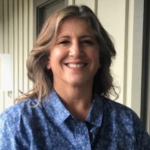
“CIHS is the best graduate school. I love the emphasis on scientific rigor and spirituality, and the integration of personal growth in each class. The professors are amazing and the administration is committed to the success and growth of each student. CIHS is an integral school that encourages multiple perspectives. If you want to grow not just academically but personally and spiritually, as well, come check out CIHS.”
CHRIS ORREY
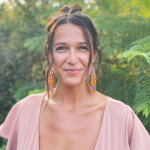
“Receiving higher education from an institute such as CIHS was the most transformative journey of my life. Academic rigor paired with spiritual awakening, psychological healing, and professional development put me through the wringer. I had never felt more complete, whole, and connected to the higher truths that I had never known I already knew. At the same time, my entire worldview was shaken and flipped upside down. I have come to see life, existence, and the perception of the physical world in an entirely new way. I have come to understand, witness and meet the force of nature that underlies human consciousness, that is to the extent of my own pscyho-spiritual evolution.”
FRANCESCA PARETTA
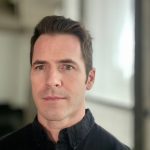
“CIHS has provided me with opportunities to understand psychology in a grounded scientific way, simultaneously exploring life, healing, and consciousness. CIHS is an ideal setting for those who are motivated to contribute to the evolution and progression of academic engagement, experiential learning, and research, and an equally supportive environment for healing practitioners seeking to deepen their skills and add to their credentials, where a multitude of perspectives are accepted and integrated, from wisdom traditions, to clinical understandings, to transpersonal awareness and beyond.”
MICHAEL SCOTT
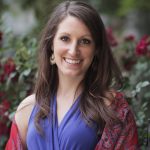
“CIHS has been an incredible experience so far, both academically and personally. I have found a “home” here where I can study consciousness and subtle energy in ways I couldn’t at previous graduate institutions. The students, faculty, and administration are amazing and have such diverse backgrounds and interests. I can’t wait to see how the school continues to evolve and grow!.”
LAUREN HICKEY

“I am so pleased with my recent PhD from CIHS. Nowhere else could I have achieved such a blended education of psychology, spirituality, and consciousness. The instructors were all well qualified and knowledgeable and assignments were reasonable. CIHS gave me the confidence I needed to expand my private practice. I also have now begun running international retreats. I feel well prepared to present myself as an expert in the field.”

